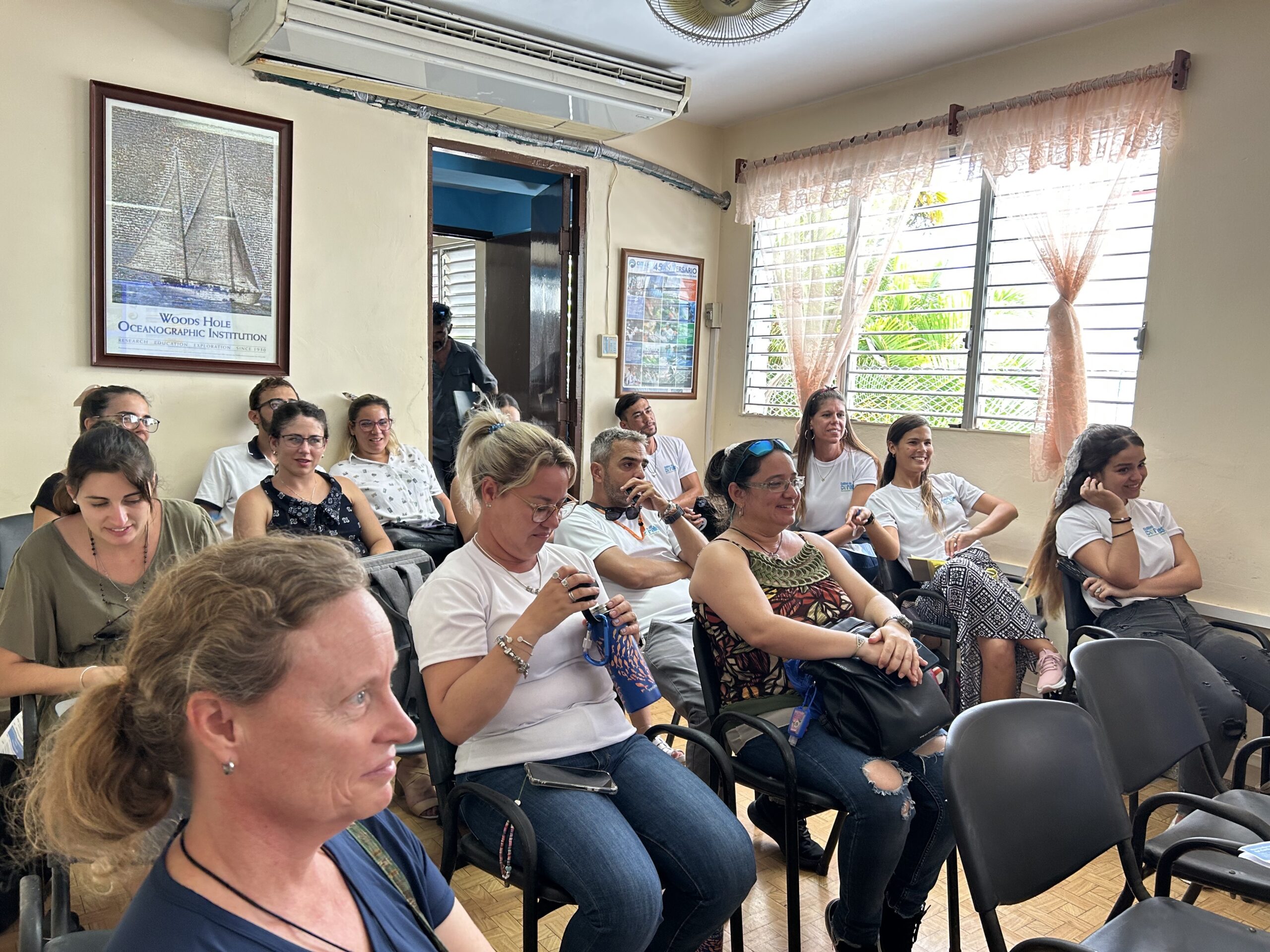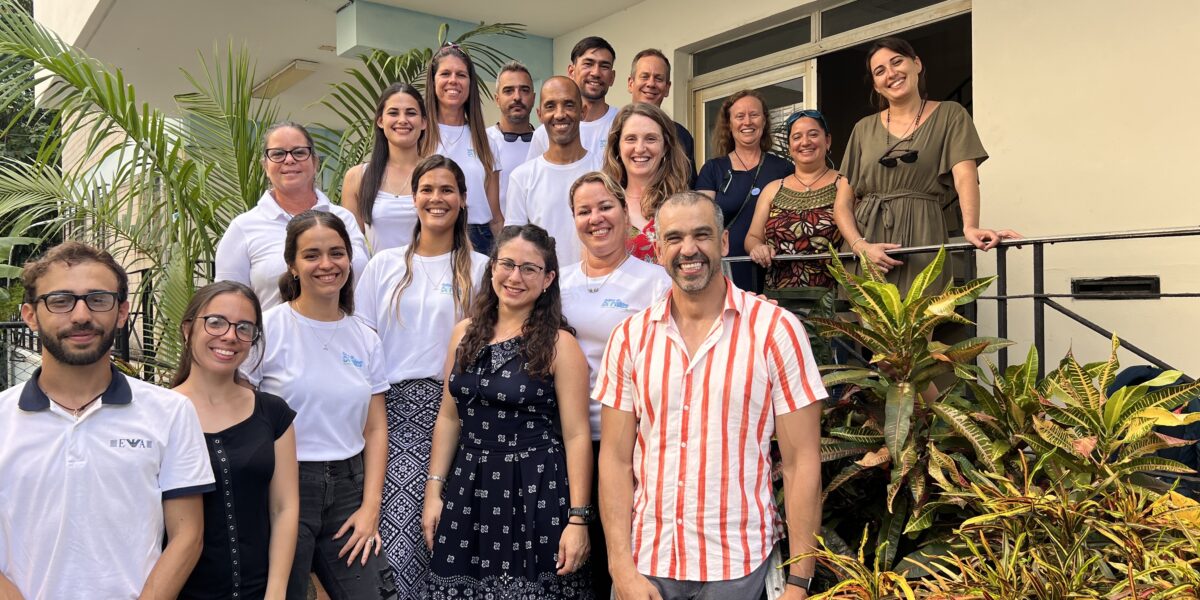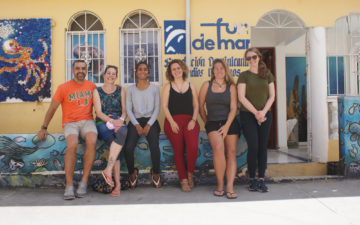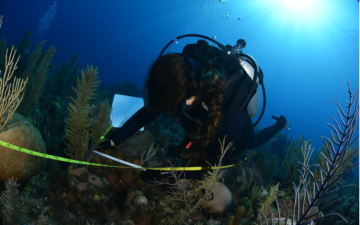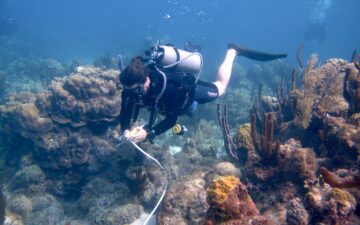In July 2021, The Ocean Foundation’s Blue Resilience Initiative (BRI) and our partners received a whopping $1.9M grant from the Caribbean Biodiversity Fund (CBF) to carry out nature-based coastal resilience in the two largest islands of the Caribbean: Cuba and the Dominican Republic. Now, two years into a three-year project, we are at a critical juncture to make sure we are properly using our human, technical, and financial resources to full effect and ensuring we can continue to upscale our work for years to come.
To advance our project of initiating larval propagation of corals, members of our BRI team traveled to Havana, Cuba from June 15-16, 2023 – where we cohosted a workshop with the Centro de Investigaciones Marinas (Center for Marine Research) of the University of Havana (UH). We were joined by renowned global coral restoration expert Dr. Margaret Miller, Research Director at SECORE which is the main technical coral restoration partner on the CBF project.
Caribbean Biodiversity Fund
We’re collaborating with scientists, conservationists, community members, and government leaders to create nature-based solutions, uplift coastal communities, and foster resilience from the threats of climate change.
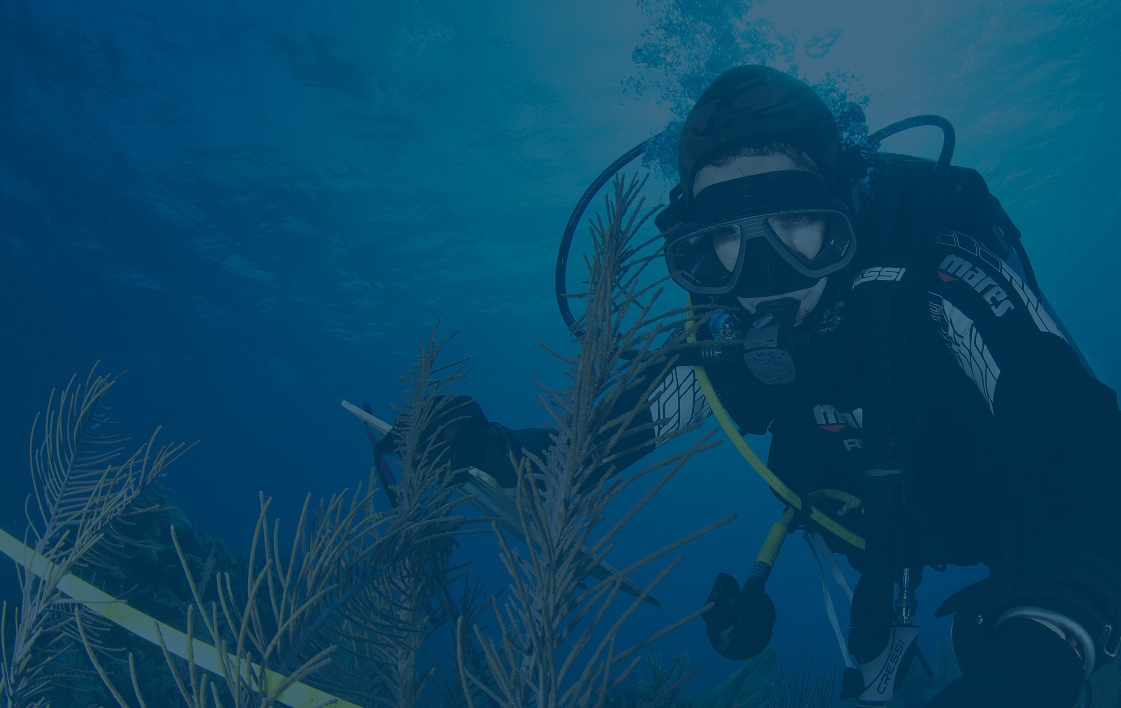
The first day of the workshop was intended as an academic venue, where students and young scientists from the Acuario Nacional de Cuba and UH could present findings related to the project.
Our work in Cuba is focused on sexual and asexual restoration at Guanahacabibes National Park and Jardines de la Reina National Park, Cuba. The former type of restoration involves the collection, fusing, and settling of spawn from wild coral colonies – while asexual restoration consists of cutting fragments, growing them out in nurseries, and replanting them. Both are considered critical interventions for increasing coral resilience.
While CBF funding is covering the chartering of vessels and purchasing of gear and equipment for coral restoration, our project can provide a platform for other types of complementary coral research or novel monitoring techniques to help gauge the success of coral restoration. Cuban scientists are documenting the health of the reef by researching coral bleaching and diseases, jellyfish, lionfish, and herbivores such as urchins and parrotfish.
We were so impressed with the enthusiasm from these young scientists who work incredibly hard to study and protect Cuban coral ecosystems. Over 15 young scientists participated and over 75% of them were women: a testament to Cuba’s marine science community. These young scientists represent the future of Cuba’s corals. And, thanks to the work of TOF and SECORE, they are all trained in the novel technique of larval propagation, which will ensure the technical capacity to introduce genetically diverse corals to Cuba’s reefs in perpetuity.
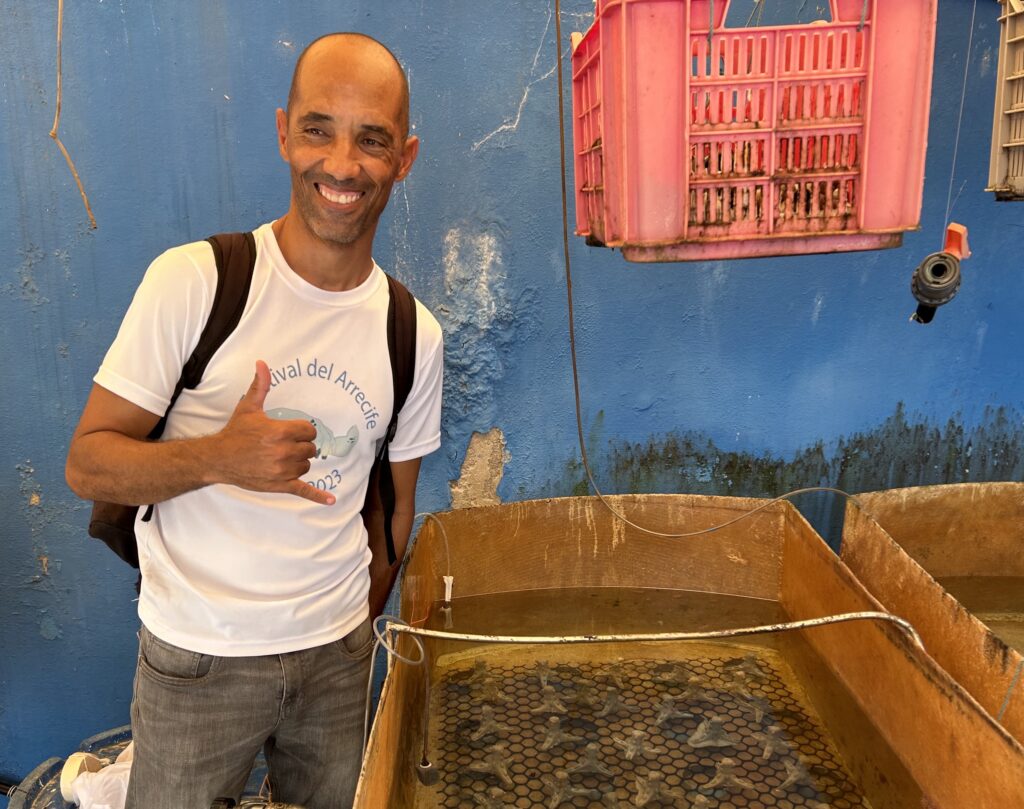
During the second day of the workshop, the team discussed prior years’ results and planned for three expeditions in August and September 2023, to restore Acropora corals and add new species to the mix.
A significant result from the projects thus far has been the creation of a coral spawning calendar for Cuba and the over 50 trained scientists and community members in coral restoration efforts. The workshop allowed our team to plan for coral restoration beyond the CBF grant. We discussed a 10-year action plan which included expanding our sexual and asexual techniques to potentially 12 new sites throughout Cuba. This will bring dozens of new practitioners to the project. We hope to host a major training workshop for these scientists in May 2024.
One unexpected outcome of the workshop was the creation of a new Cuban coral restoration network. This new network will streamline decision-making and serve as a technical basis for all coral restoration work in Cuba. The five Cuban scientists selected will join TOF and SECORE experts in this exciting new platform.
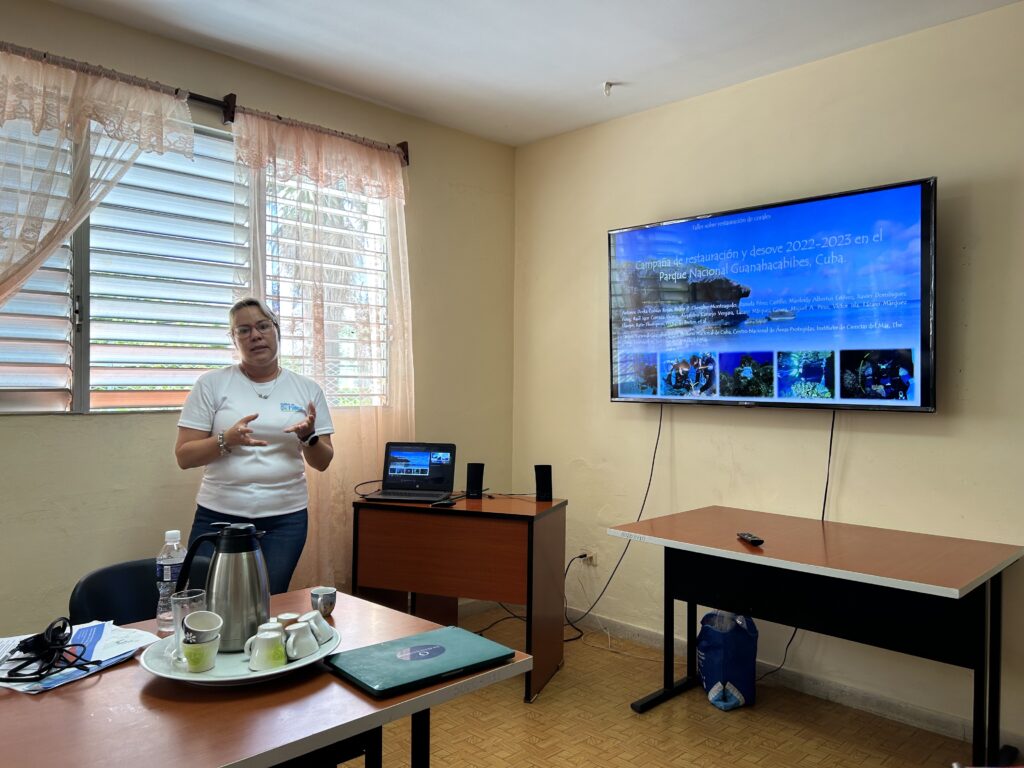
Our workshop gave us motivation to continue this work. Seeing such young and enthusiastic Cuban scientists devoted to protecting their country’s unique marine and coastal habitats makes TOF proud of our continuous efforts.
